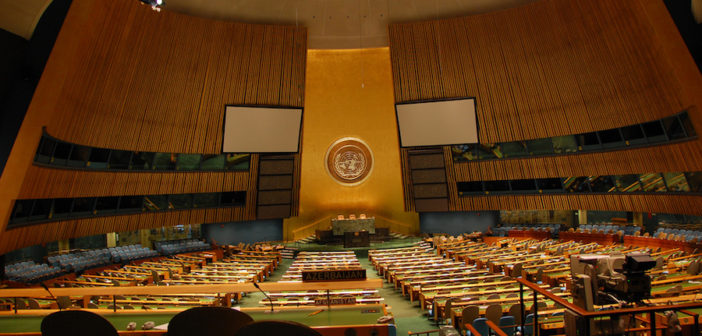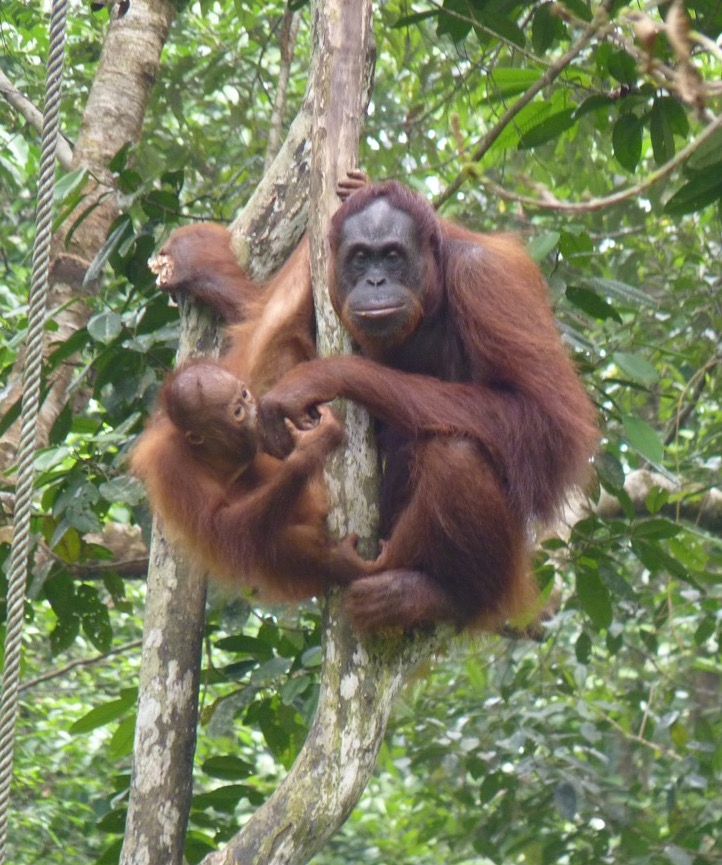Animal Issues Woefully Underrepresented at the United Nations
As the leading intergovernmental organization promoting human and environmental rights, you would have expected the United Nations (UN) to give proper consideration to animal welfare issues – particularly bearing in mind the many cross-cutting issues involved and the number of intersections between animal welfare and human rights and the environment. Unfortunately, this couldn’t be further from the truth.
At the moment, animals are not well represented at the UN, but animal protection organizations can change that.
As a nongovernmental organization (NGO), the only formal way to advocate for animals at the UN is to apply for and receive official status with the UN Economic and Social Council (ECOSOC). So far over 4,000 NGOs hold status with ECOSOC, but only eight of these are animal protection groups:
- The Humane Society of the United States (1996)
- World Animal Protection (formerly World Society for the Protection of Animals) (1971)
- International Association Against Painful Experiments on Animals (1972)
- International Fund for Animal Welfare (2002)
- Organizzazione Internazionale Protezione Animali (OIPA) (2014)
- Vier Pfoten International (2015)
- World Animal Net (2001)
- Centre for Respect of Life and the Environment (an HSUS affiliate)
In 2015 the United Nations passed the Sustainable Development Goals (SDGs) with no explicit mention of animal welfare. However, many aspects of the SDGs overlap significantly with animal issues (particularly those related to biodiversity, sustainable agriculture, and preservation of the oceans). As this is the system for implementation of UN strategy through 2030, it is up to animal protection organizations to make sure that animal issues are not ignored as the UN continues to develop implementation, monitoring and evaluation; and annually review the Goals.
Clearly, there is room for many more groups to stand up for animals on an international scale. The more organizations that receive status with ECOSOC, the more comments and statements can be submitted, and the stronger the representation for animals at the UN.
What Advocacy Opportunities Are Provided with Official Status at ECOSOC?
There are three levels of status that organizations can attain with ECOSOC: General, Special, and Roster.
General Status is typically granted only to large international NGOs whose work overlaps significantly with ECOSOC’s agenda. Special status is the status that most incoming NGOs receive, and is granted to NGOs that are smaller and which have special competency in just a few of the areas on ECOSOC’s agenda. Finally, Roster status is reserved for organizations that apply for status, but which do not fit any of the above criteria. These organizations tend to have a narrow or technical focus. WAN was granted roster status in 2001, but moved to Special status in 2015.
Status with ECOSOC provides NGOs the following opportunities:
- Attend official meetings;
- Submit written statements prior to sessions;
- Make oral statements;
- Meet official government delegations and other NGO representatives;
- Organize and attend parallel events that take place during the session;
- Participate in debates, interactive dialogues, panel discussions and informal meetings.
However, the degree of participation varies depending on the status received. For example, NGOs with General Status may submit written statements to ECOSOC with a 2,000 word limit, while organizations with Special Status have a word limit of 500 for statements to ECOSOC, and 1,500 for statements to subsidiary bodies. Organizations with Roster status can only submit statements if they are invited to do so. Similarly, only NGOs with General or Special status may submit oral statements. Organizations with Roster status may do so when invited.
More information can be found in this brochure, and on the NGO Branch website.
How Can Your Organization Apply for Status with ECOSOC?
The deadline to apply for status is June 1, 2017. Organizations that apply by this deadline will be considered at the January or May 2018 Committee for NGOs meetings. The Economic and Social Council will then approve the recommendations of the Committee in July 2018.
More information about the application process can be found on the NGO Branch website, and a webinar will be hosted on May 5 to provide further information to NGOs who are interested in applying.
You can also watch this video about WAN’s advocacy at the UN and application for consultative status prepared by our Senior Policy and Resource Consultant, Akisha Townsend Eaton.
If you have additional questions about the application process, feel free to contact us—we’re happy to help and share our experience with the application process.
Featured image: Untitled by Gabriel Rodriquez is licensed under CC BY-SA 2.0








1 Comment
Looking to support animals? Raise money for your cause just by doing your everyday shopping through Goodshop.